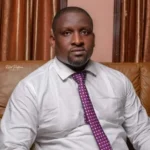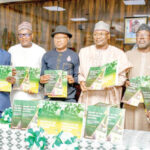Five days to Saturday’s presidential and National Assembly elections, fears of insecurity in some parts of the country and the credibility of the electoral process may affect the turnout of voters, Daily Trust reports.
Despite a steady rise in the number of registered voters in Nigeria’s seven election cycles, since 1999, the country has witnessed a gradual decline in voter turnout.
The Independent National Electoral Commission (INEC) had registered a total of 93, 469, 008 voters across the country’s 36 states and the Federal Capital Territory (FCT), the highest since 1999. The figure showed a 61.3 per cent rise from the 57.9 million voters who registered for the country’s election in 1999.
Experts, however, said that despite the high registration numbers, the security situation and trust would affect the turnout of voters in this year’s polls.
Election: Naja’atu, 44 others to supervise police officers’ conduct
Daily Trust Economists: Credible elections will boost confidence in economy
Data mined from INEC, the International Institute for Democracy and Electoral Assistance (I-IDEA) by Daily Trust showed that out of Nigeria’s six electoral cycles, the North West had led in five election cycles, producing the highest valid votes cast.
Ahead of Saturday’s polls, INEC’s register shows that the North West, with 22 million eligible voters has the lion’s share of the country’s 93 million voters. The region is followed by the South West with 17.9 million and the North Central with 15 million eligible voters. Others are; South-South 14 million, North East 12 million and the South East lies at the bottom with 10.9 million registered voters.
Analysts said the North West, especially, Kano, Kaduna and Katsina is where many of the presidential candidates are aiming to win with high margins or reduce their margin of loss.

Why previous polls recorded low turnout – Experts
Nigeria’s electoral cycles have witnessed a drop in voter turnout, with the 2019 election dropping to an all-time low of 28.6 million from the 82.3 million registered voters.
Before then, the 1999 election had witnessed the lowest voter registration with 57.9 million voters even though voter turnout stood at 30.2 million. In 2003, the voter register rose to 60.8 million but voter turnout was 42. 01 million.
By 2007, the voter register, according to the electoral commission, rose to 61.5 million but the voter turnout dropped to 35.3 million. In 2011, INEC again, announced an increase in the number of registered voters, placing the figure at 73.5 million while the turnout stood at 39.4 million.
The year 2015 represented Nigeria’s election threshold but it also represented one of the lowest voter turn-outs witnessed in the country’s electoral period. According to INEC, the voter register stood at 67.4 million while the turnout dropped significantly to 29.4 million.
Speaking on the drop in voter turnout, Abubakar Usman Kari, an Associate Professor of Political Sociology at the University of Abuja, said the past voter register has been unreliable and lacked authenticity.
“There were a lot of fictitious names, dead persons, underage persons and so on in the register,” Kari said.
“The truth is that many of those votes across the country were fictitious votes. Though electoral reform has been in progress, most of the votes in previous elections could not be authenticated. In other words, they were outcomes of massive electoral malpractice,” he said.
Explaining the higher turnout in the north in 2015 as against the massive drop in the south, Kari said there had been a huge enthusiasm to usher in a new government to change the then ruling PDP.
“Northerners turned out in their numbers to vote for Muhammadu Buhari. That accounted for a relatively large number of voters turn-out from the north,” he said.
He however added that by 2019, “People had started getting disappointed. The expectation that Buhari was going to deliver did not materialise and so many of them decided not to turn up.”
However, Dr. Kayode Eesuola, a Research Professor of African Politics at the University of Lagos said voter turnouts whether high or low could be explained by the peculiar sociopolitical situations of a country.
He said issues ranging from the lack of understanding of voting to the violence that has greeted “Our own experiences in our country,” to the disappointment that people have in democracy could determine voter turnout.
He stressed that lack of understanding of voting, violence and disappointment that people have are the three points that could explain reasons for a low or high turnout.
Security, trust to determine turnout – CDD
The Director, Centre for Democracy and Development (CDD), Idayat Hassan, said the security situation across the country would play a key role in determining the turnout of the voters.
Hassan, while speaking with Daily Trust, noted that with an increase in the total number of registered voters in Nigeria, the 2023 elections are projected to have a significant voter turnout based on the number of youths that have trooped out to collect their permanent voters’ cards (PVCs).
She, however, said: “That alone is not enough. It should be predicated on a pool of issues. One is the security situation.
“Secondly, is the issue of trust in the system? Do people trust the system? Do they believe that the elections will be credible? The perception of credibility that their votes would count is an issue of concern too because it will affect their turnout.”
Also speaking, Dr. Kayode Eesuola, of the University of Lagos explained, “Compared to what you have in the past, there is a likelihood of higher voting. However, it depends on the situations that surround the election days. Before the election, we have started seeing violence; attacks on banks, private individuals, police stations, amongst others.”
He said going by the theory of people not wanting violence and high-risk political behavior, should this continue, the high registration figures “May just as well end up on the pages of paper where it exists: they may not transform into any electoral value.
“When people spot violence, they might not turn out as expected,” he said, adding, “If with the 2015 expectation and what Nigerians have gotten so far ranging from a number of evils like terrorism, banditry, kidnapping, fuel crisis, economic crisis, food crisis, hunger and collapse in our educational system; then tell me why should a rational human think democracy is something to patronise?”

 Join Daily Trust WhatsApp Community For Quick Access To News and Happenings Around You.
Join Daily Trust WhatsApp Community For Quick Access To News and Happenings Around You.


